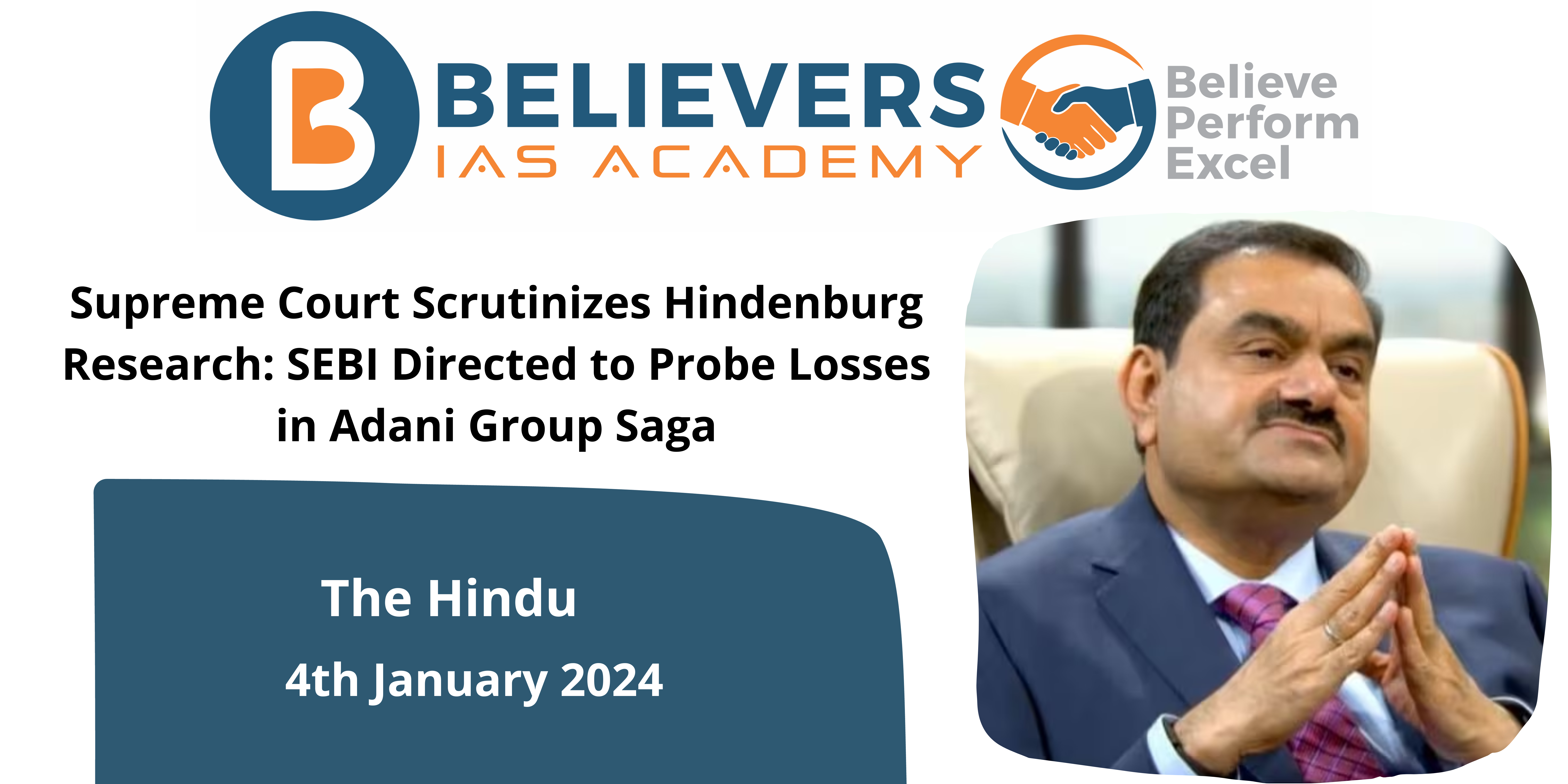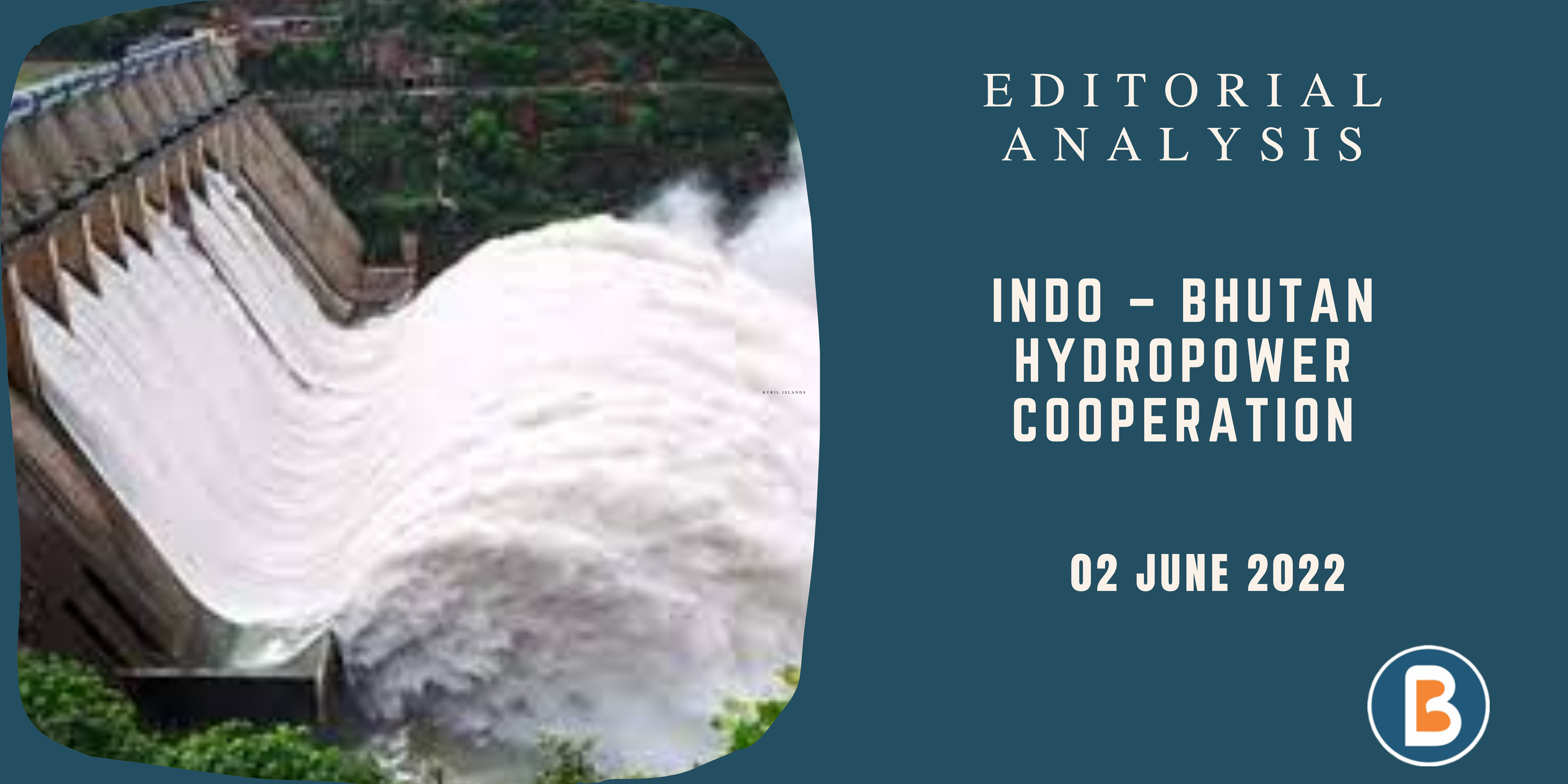Supreme Court Scrutinizes Hindenburg Research: SEBI Directed to Probe Losses in Adani Group Saga
Context:
The Supreme Court has thrust Hindenburg Research into the limelight, instructing the Securities and Exchange Board of India (SEBI) and central investigating agencies to scrutinize the conduct of the U.S.-based firm.
- The focus is on potential law infringements related to Indian investors’ losses due to Hindenburg’s short position in Adani Group through U.S.-traded bonds and non-Indian traded derivative instruments.
- The court’s directive follows petitions highlighting a sudden decline in investor wealth and market volatility post a Hindenburg Research report on January 24, 2023, accusing Adani Group of price manipulation and regulatory violations.
Relevance:
GS-03 (Economy)
Key Highlights:
Supreme Court’s Investigative Push:
- The Supreme Court directs SEBI and central agencies to investigate Hindenburg Research’s activities concerning Indian investor losses in Adani Group.
- The court emphasizes the need for suitable action if any legal breaches are identified.
- The court’s judgment stems from petitions highlighting a significant fall in investor wealth and market volatility following Hindenburg’s report alleging irregularities within the Adani Group.
Supreme Court’s Directives to SEBI:
- The Supreme Court instructs SEBI to expeditiously conclude the remaining two investigations within three months. It emphasizes the importance of avoiding an open-ended and indeterminate probe duration.
- The court rejects petitioner claims suggesting that SEBI’s amendments in Foreign Portfolio Investors Regulations and Listing Obligations and Disclosure Requirements had hindered the investigation. The court deems the amendments legitimate and not aimed at creating and exploiting loopholes.
Adani Hindenburg Controversy
What is Hindenburg?
- Hindenburg is an institute specializing in “forensic financial research,” focusing on uncovering corruption or fraud in the business sector, including activities such as accounting irregularities and questionable practices in management.
- Hindenburg Research, a US-based investment research firm, specializes in activist short-selling and was established in 2017 by Nate Anderson, a chartered financial analyst and a chartered alternative investment analyst.
Understanding Short Selling:
- Short selling, as defined by the Securities and Exchange Board of India (Sebi), involves selling a security or share that the seller does not own.
- Investors engaged in short selling sell borrowed shares with the expectation of repurchasing them at a lower price later on. This practice is the opposite of traditional stock market investments, where investors purchase shares with the anticipation of their value increasing over time.
- Short selling does not require ownership of the company’s shares; instead, investors can borrow shares/assets from brokers or dealers.
Hindenburg’s Allegations against the Adani Group:
- Hindenburg Research has accused the Adani Group of being “involved in stock manipulation and accounting fraud.” The Adani Group, with diverse interests in ports and logistics, power generation, agribusiness, real estate, defense, solar energy, financial services, natural resources, and media, is the subject of these allegations.
- According to Hindenburg’s report, the Adani Group is purported to have engaged in ₹17.8 trillion (US$ 218 billion) elaborate stock manipulation and accounting fraud schemes spanning decades. The report claims that the Adani family controlled offshore shell entities in tax havens across the Caribbean, Mauritius, and the United Arab Emirates, allegedly used for facilitating corruption, money laundering, and taxpayer theft. The report further asserts that these entities were involved in diverting funds from the group’s listed companies.




